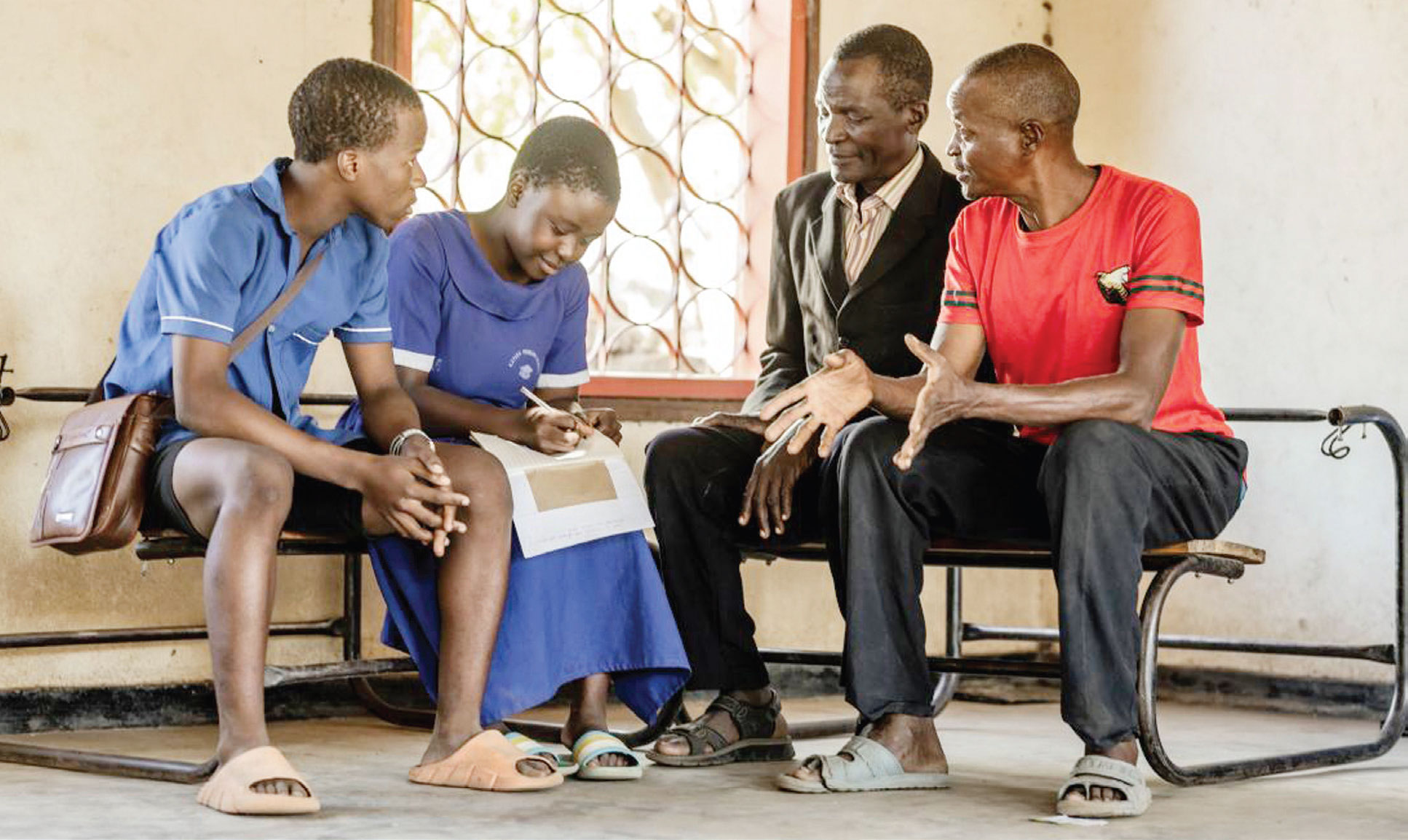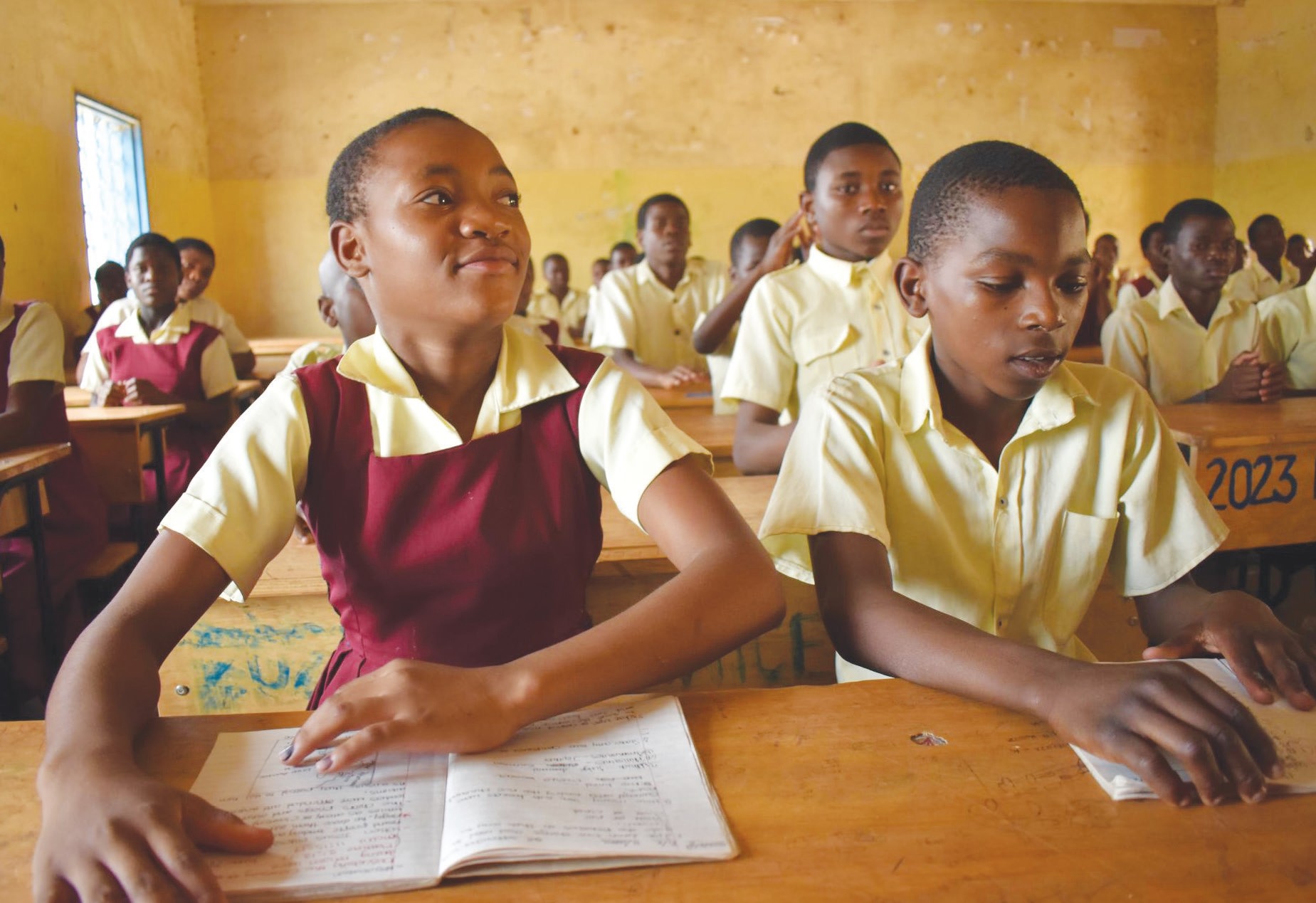Cutting on Malawi’s donor dependency
 It is only two years before Malawi celebrates its golden jubilee of independence, but the country is far from being free from poverty. Almost 50 years after independence, the so-called sovereign nation still depends on donor aid to run its affairs.
It is only two years before Malawi celebrates its golden jubilee of independence, but the country is far from being free from poverty. Almost 50 years after independence, the so-called sovereign nation still depends on donor aid to run its affairs.
No wonder, its people die of hunger amid plenty of natural resources—water, fertile soils and minerals. People in the country’s major cities wake up to dry taps, yet the country is endowed with Lake Malawi, Shire River and many other water bodies.
Tired of living in poverty, people of Sinkani Village, Traditional Authority Njewa, in Lilongwe formed a community village savings and loans group called Mpita. This was in 2005 after officials from Community Savings and Investment Promotion (Comsip) visited the community and pledged to support them in their endeavour.
“It was great news in the village. Most people welcomed the development and quickly formed the group,†says Ibrahim Tayib, one of the group’s founding members: “We all saw our poverty ending.â€
But within a short period, they got frustrated. The reality contradicted their expectations.
“Comsip officials said they were not there to give us loans, but to help us manage our own finances. We learnt that we were supposed to contribute towards the group’s capital and later on obtain loans from our own savings. This did not go down well with many people and they abandoned the group,†Tayib explains.
By 2006, only 10 members, five men and five women, remained in the group. The initial contribution amounted to K10 000.
By contributing, it meant the member had bought shares. They kept on contributing, giving out loans and by 2007, the group’s money went up to K350 000.
In 2009, the amount reached K875 000. Tayib was chosen as the group’s chairperson.
“As of now, our finances stand at K3.4 million,†he says.
Instead of just keeping the money, the group has invested part of the money in other areas.
As Tayib says: “In February this year, we bought a three-tonne truck. It belongs to the group, whose membership still remains at 10 and the millions belong to them.
“We could not readmit those who had chickened out at earlier stage because they had showed their true colours. They were after spending and not making money. But these days, they plead with us to allow them in again.â€
The group also hires out its truck and makes about K100 000 to K350 000 a month.
Apart from the truck, Mpita Savings and Loans Group has bought a piece of land where they plan to build an office block. The members have also benefitted individually.
“Some have built modern houses, some of which they rent out. Others are running family businesses such as shops and a bakery.
There is a fertiliser revolving scheme with a limitless number of bags of fertilisers one can obtain. Tayib says others get up to 15 bags per person.
The group also runs a medical scheme where, if a member falls sick, he or she can get money for medical expenses.
“It is a simple scheme, which has no hidden costs and conditions,†he says.
The members are visionary and value education.
“It is mandatory for each member’s children to go to school,†he says.
One of the five female members is Lozina Tafatatha. With an initial share contribution of K500 in 2005, Tafatatha’s shares are now in thousands of kwacha.
“Soon, I will be a millionaire,†she says.
She owns a tea room and a bakery, businesses whose capital came from the group.
“I have also bought land where I will build modern houses like those in towns,†Tafatatha says.
Each venture is never without ups and downs. The chairperson recalled an incident in 2010 where a person got a loan of K 15 000 and offered a refrigerator as collateral.
“The person failed to repay the loan and the refrigerator was confiscated. The person reported us to police and I was arrested and accused of theft,†says Tayib.
They were saved by documentation.
“We registered the group with the Ministry of Trade and Industry and we have a certificate for our operations. It is this certificate that saved us from the law enforcers,†he explains.
Non-members are also free to obtain loans from the group.
“Members pay 15 percent interest rate while non-members pay 20 percent,†he says.
Given the success story of Mpita Savings and Loans Group, it is possible for Malawi to develop and stop relying of donor aid.
The group has proved that it is possible to recover the economy and develop it further by simply tapping on domestic resources.
Â





